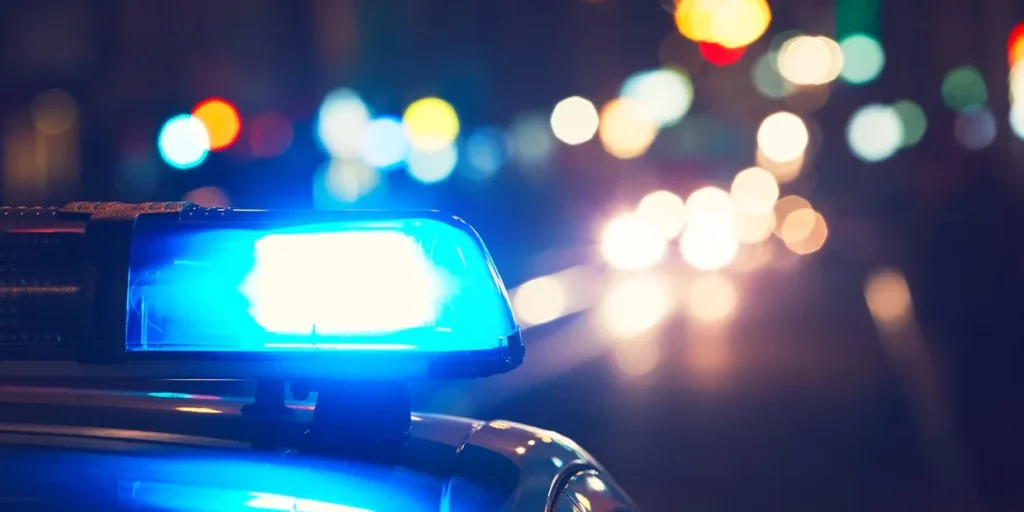What is Skye’s Law?
On New Year’s Eve in 2009, a tragic police pursuit ended in the death of 19-month-old Skye Sassine, who was struck and killed by a vehicle involved in a high-speed chase. In response to this devastating incident, the NSW Government introduced what is now known as Skye’s Law.
Skye’s Law is officially contained in Section 51B of the Crimes Act 1900 (NSW), and makes it a criminal offence to evade police in a motor vehicle while driving dangerously.
What Is the Offence Under Skye’s Law?
Under Section 51B, it is an offence to engage in a police pursuit after knowing police are attempting to pull you over, and then to drive in a reckless or dangerous manner.
Penalties for Skye’s Law (Police Pursuit)
- First offence: Up to 3 years imprisonment
- Second or subsequent offence: Up to 5 years imprisonment
In addition to jail time, offenders also face automatic licence disqualification:
| Offence | Minimum Disqualification | Automatic Disqualification |
|---|---|---|
| First offence | 12 months | 3 years |
| Second/subsequent offence | 2 years | 5 years |
These penalties highlight the seriousness with which NSW courts and police treat police pursuit offences.
What Must the Prosecution Prove?
To secure a conviction under Skye’s Law, the prosecution must prove all of the following elements beyond reasonable doubt:
- You were being pursued by police;
- You knew or ought to have known that police were attempting to stop your vehicle;
- You failed to stop when directed;
- You were driving in a reckless or dangerous manner during the pursuit.
If even one of these elements is not proved beyond reasonable doubt, you must be found not guilty.
Available Defences to a Police Pursuit Charge
There are a number of legal defences that can be raised against a charge under Skye’s Law. These include:
- Honest and reasonable mistake of fact (e.g., you did not realise the police were signalling you to stop)
- Duress (you were forced to continue driving due to threats or coercion)
- Necessity (you continued driving to avoid serious harm or danger)
If any of these defences are raised, the prosecution bears the burden of disproving them beyond reasonable doubt.
Can You Reduce the Licence Disqualification Period If You Plead Guilty?
Yes, but only in certain circumstances.
If you’re found guilty or plead guilty to a police pursuit offence, the minimum disqualification period cannot be reduced. However, the automatic disqualification period may be lowered if you are sentenced in the Local Court and the magistrate is persuaded that your circumstances warrant leniency.
To improve your outcome, you should consider:
- Preparing strong character references
- Writing a personal apology letter to the court
- Completing a Traffic Offenders Intervention Program (TOIP)
- Obtaining a psychological or medical report, if relevant
Having an experienced criminal defence lawyer can help ensure the court receives all relevant material to support your case.
Facing a Police Pursuit Charge? Get Expert Legal Help
A charge under Skye’s Law is a serious criminal offence that can result in lengthy imprisonment and disqualification from driving. If you’ve been charged with a police pursuit or any serious traffic offence, you need strategic legal advice as early as possible.
At Criminal Lawyers Group, we have extensive experience defending clients facing police pursuit and dangerous driving charges. We act swiftly to:
- Review the police evidence
- Identify weaknesses in the prosecution case
- Advise you on the best course of action
- Negotiate with police prosecutors
- Represent you powerfully in court
📞 Contact Us Today for a Confidential Consultation
If you or someone you know has been charged with a police pursuit offence under Skye’s Law, don’t wait.
👉 Visit www.criminallawyersgroup.com.au
📱 Or call us 24/7 for urgent legal help.
We represent clients across Sydney and New South Wales and are ready to protect your rights and future.
